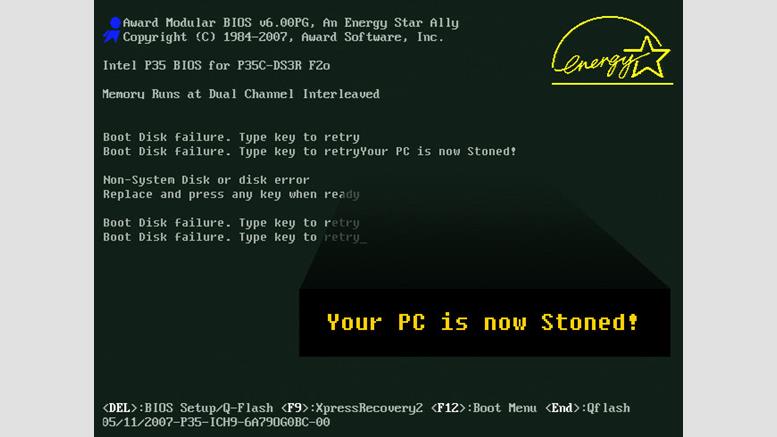
Virus Signature Uploaded into Bitcoin Blockchain Reportedly Causing Some MSE Users Grief
There's an interesting discussion that's sprouted up on the Microsoft discussion boards relating to Microsoft Security Essentials (MSE) - Microsoft's out-of-the-box malware prevention software. A user by the handle "edc678" reports that a virus signature from the "DOS/STONED" virus was uploaded to the bitcoin blockchain. And since we're only dealing with the virus signature, there doesn't seem to be a threat to users. But users of Microsoft Security Essentials are getting a whole lot of grief from their software. MSE is essentially recognizing the signature, reporting it to the user as a....
Related News
Global Bitcoin payment processor BitPay has notified users to of a newly discovered Trojan virus that is affecting some bitcoin purchases. Notably, the virus has not compromised any user wallets of payment systems. In an alert issued on Friday, bitcoin payment service provider BitPay has warned users to be on the lookout for a new virus. While there are no signs of a widespread infection, the “Coinbitclip” virus has affected some bitcoin purchases. The company’s support team received several reports of the virus affecting purchases of the cryptocurrency, on Windows systems specifically. As....
A Facebook virus that mines Bitcoin has been discovered in Norway and is spreading rapidly across the globe. Experts call it a Norwegian phenomenon. The Facebook Virus is taking form as a Facebook direct message. If you have received a direct message on Facebook that looks like the image above then do not download or open it. Senior adviser Vidar Sandland from the Norwegian Center For Information Security (Norsis) warns Facebook users about the new virus. The virus was observed for the first time in Norway a week ago according to Norsis, and is spreading fast through the message system on....
A trojan called CoinThief is stealing tens of thousands of dollars worth of BTC from unsuspecting Mac users. Contrary to popular belief, Macs do in fact get viruses. It's just that 91% of the world uses Windows while only 7% of the world uses OSX (The remaining percentage uses Linux). As such, virus makers have more incentive to create malware for Windows, because it simply makes sense to target the majority of computer users. This is generally great news for Mac users, since they remain virtually virus free. However, it can make them pretty complacent about security, and when a Mac virus....
The latest Bitcoin scam involves fake porn virus alert that forces victims to buy freely available anti-virus software with Bitcoin. Porn is one of the widely searched content on internet. There are millions of adult websites – and many of them are known to host adware and other malicious codes. Scammers have taken advantage of this fact to convince people into sending them Bitcoin. The widespread scam is currently making rounds in Tasmania. According to news reports, scammers are sending fake pornographic virus alerts to unsuspecting computer users. The fake alert containing a....
Wallets are one of most basic applications on any blockchain platform. They provide the interface for users to interact with the blockchain. Some wallets, such as the one offered by Bitcoin Core, connect to the blockchain directly via a full node, while others depend on web services to provide access. At the basic level, a wallet seeks to serve users by receiving, sending, monitoring and listing transactions within a cryptocurrency. More advanced wallets enable users to gain better security or perform an extended set of actions on the blockchain, thus increasing their worth. This is....





